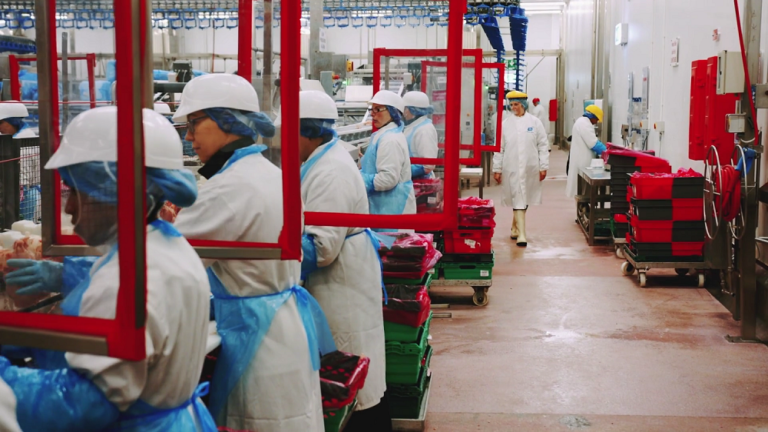The decision by Moy Park to scale back production of chicken in Northern Ireland until September replicates what many other poultry businesses have done over the past year.
2 Sisters reduced production by 10-15% last year in response to rising labour and other input costs. Avara Foods closed its duck business in response to global trends exacerbated by the pandemic and is currently reorganising its turkey business.
But although Moy Park says the move to stop the slaughter of live birds at its Ballymena plant is only temporary until a new contract with Sainsbury’s comes into effect in September, the effect on producers is still painful.
The Ulster Farmers’ Union (UFU) said its members are deeply concerned. UFU deputy president William Irvine told Poultry Business the impact on the broiler sector would be huge. “The reduction amounts to 300,000 birds per week until September,” he said.
In a normal year, producers supplying Moy Park would grow seven crops. The decision means instead of having a week to 10 days between crops, this is being extended to 14 days plus, which will reduce the number of crops by one in the year. “This is roughly is a 15% hit on income,” Irvine said.
“Our members are extremely disappointed and worried about Moy Park pulling back on production here. It is the second time this has happened in less than three years and will create ongoing income pressures,” he said.
In addition, Moy Park’s feed mill will during the same period switch from seven day a week operation to five days a week – again to reduce costs.
“My understanding is the energy costs, the labour costs and the feeding costs have all risen substantially and Moy Park have been unable to get a rise in price from their existing supermarket customer,” Irvine said.
The situation in Northern Ireland reflects the inflationary pressures affecting poultry businesses across the UK. But Irvine said it was unfair that farmers would be expected to bear the costs. It was inevitable consumers would have to pay more for their food.
“In a lot of sectors, the costs are rising, and there isn’t capacity to soak up that extra cost. So, it has to be passed on to consumers. Supermarkets are reluctant to do that, but there is a crunch coming here.”
Some farmers would really struggle to make the new arrangements work, he added. “The farmers have all these extra costs and now they are taking a 15% hit on income. For a long time, there has been a tightening on margins, but there is a limit to how long you can do that.”
New entrants in particular were vulnerable, he said. “There are a significant number of new units within the Northern Ireland poultry sector, and their overheads would be quite high and I would suspect they are the vulnerable ones rather than the longer established ones. And whether they can batten down the hatches and survive remains to be seen.
“Moy Park are hugely profitable so they could take a wee bit of this pain too.”
A spokesperson for Moy Park said: “As we respond to customer growth and labour market challenges, we are proposing to move team members from the live bird processing line to our further processing lines, enabling us to increase production at Ballymena.
“No jobs will be impacted by these changes however we are planning to temporarily pause live bird processing at Ballymena as we focus on seasonal and retail products. The live processing line will restart again in September. We will be working closely with our farming partners throughout the process to manage this temporary reduction in poultry requirement.”


